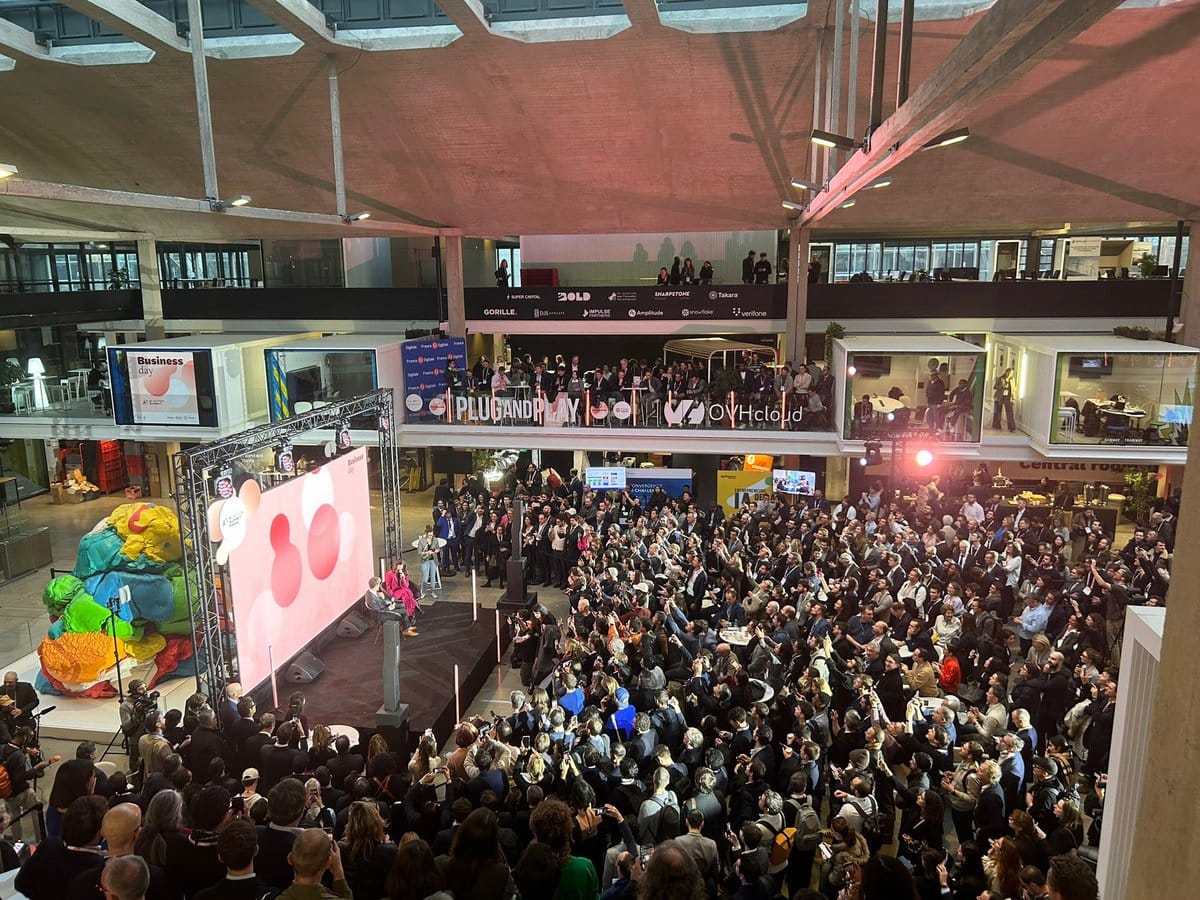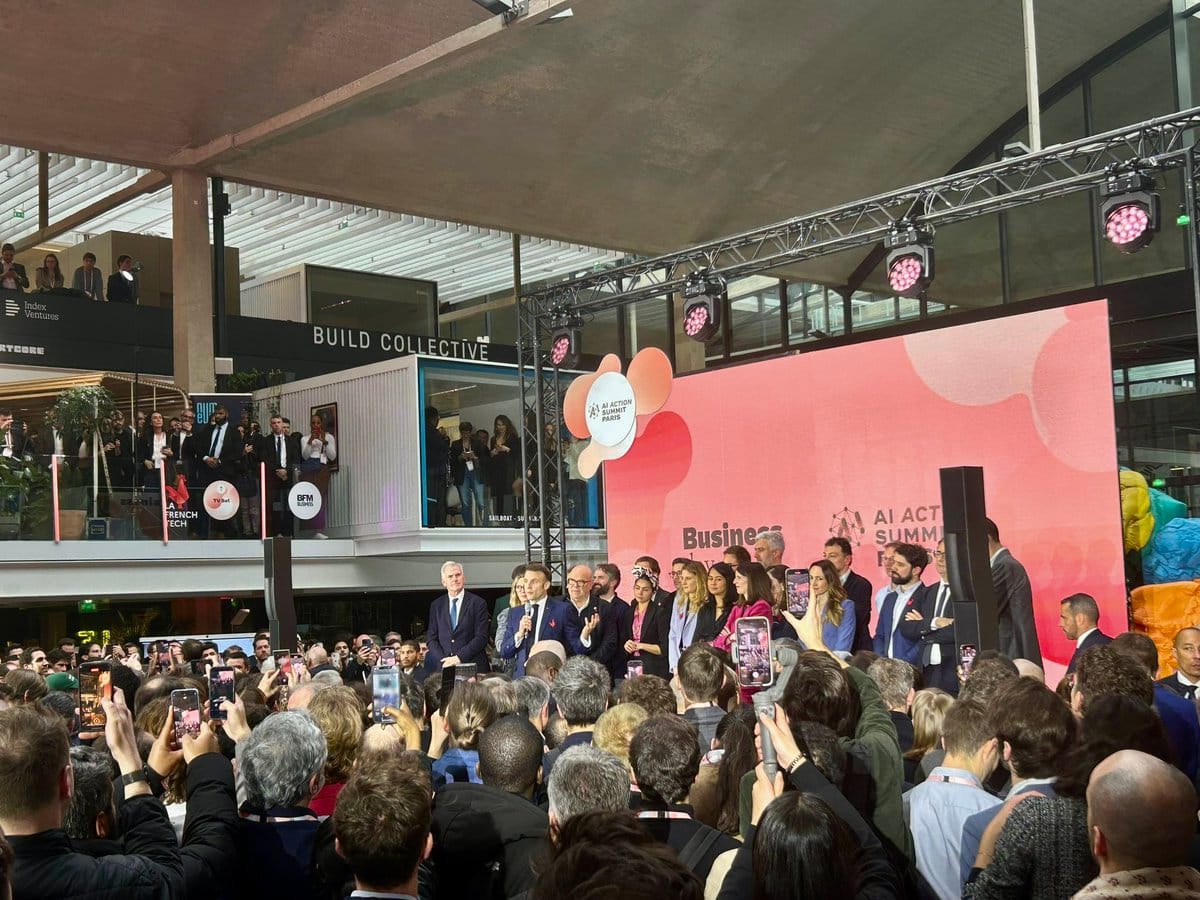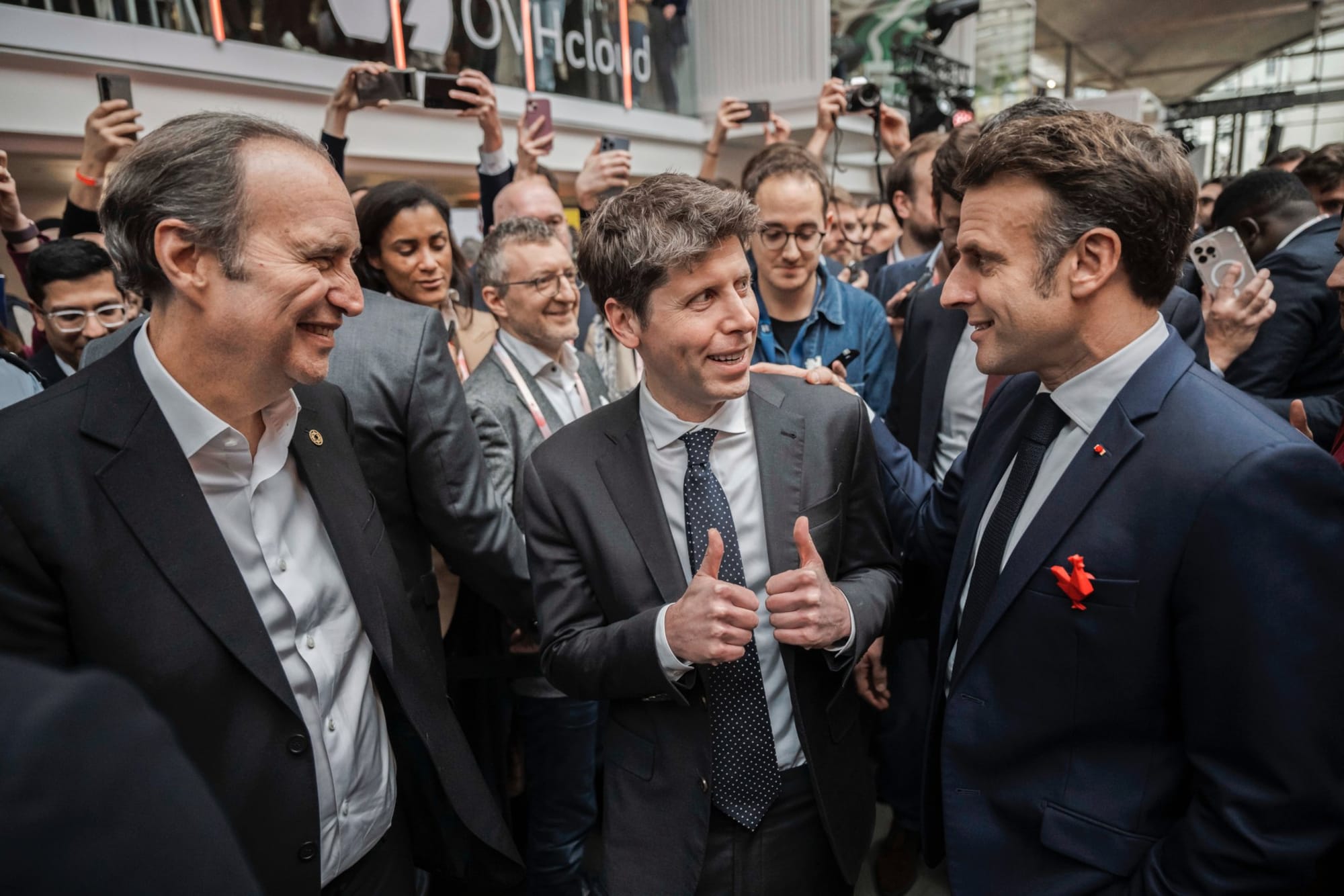If anyone was expecting the US to show up at the AI Summit for Action in Paris and hold hands and sing kumbaya with other world leaders, well, then the outcome on Tuesday was likely a shocking disappointment.
But for the rest of us still in touch with reality, the blunt lecture that U.S. Vice President JD Vance delivered to the summit was about right on brand. It was an our-way-or-the-highway moment as Vance made clear that the U.S. believes that AI don't need no stinkin' regulations.
“This administration will ensure that American AI technology continues to be the gold standard worldwide...excessive regulation could kill a transformative industry just as it’s taking off," he said with a characteristic lack of subtly.
He warned against international efforts that might impose restrictions on U.S. tech firms and cautioned against the European Union’s regulatory approach. “The A.I. future is not going to be won by hand-wringing about safety,” he said. “The Trump administration will ensure that the most powerful A.I. systems are built in the U.S. with American design and manufactured chips.”
However, he did offer to let Europe play the role of America's lovable AI sidekick: "Just because we are the leader doesn’t mean we want to or need to go it alone.”

A Clash of Philosophies on AI Regulation
Vance’s remarks highlighted a fundamental divide with Europe, which is pushing for structured AI governance. European Commission President Ursula von der Leyen spoke after Vance and insisted that it is possible to find the right regulatory approach and still innovate. Indeed, she argued, thoughtful regulation can help with the adoption of AI.
“Yes, A.I. needs competition,” she said. “But A.I. also needs collaboration. And A.I. needs the confidence of the people, and has to be safe.”
She defended the European Union’s regulatory approach and suggested there was a “distinct European brand of A.I.” that focused on “complex applications,” that was cooperative, and that embraced an open-source approach, meaning the underlying software is widely shared.
“Too often I hear that Europe is late to the race, that the United States and China have already gotten ahead,” she said. “I disagree. The A.I. race is far from being over.”
French President Emmanuel Macron and Indian Prime Minister Narendra Modi, co-chairs of the summit, emphasized the need for a collaborative approach to AI governance. President Macron underscored the balance between innovation and responsible regulation, stating, “Paradise cannot mean the Wild West.”
He advocated for a framework that ensures AI remains a force for good while respecting fundamental rights and privacy.
Europe’s Vision: AI as a Public Good
Von der Leyen called for an open-source approach to AI development, emphasizing accessibility and trust. She announced a €200 billion investment plan to support AI infrastructure, including European supercomputing facilities and AI Giga Factories to provide equitable access to computing power.
“We must invest in what we do best... open innovation, transparency, and trust,” she said.
Von der Leyen’s speech underscored the EU’s ambition to establish AI safety norms while fostering industrial AI applications. Her announcement of the Invest AI Initiative, adding another €50 billion to support AI startups, reinforced Europe’s commitment to competing in the AI race without compromising ethical considerations.
The Outcome: A Fractured Agreement

The summit’s final statement reflected these divergent viewpoints. The Paris Charter on Artificial Intelligence in the Public Interest and the Statement on Inclusive and Sustainable Artificial Intelligence for People and the Planet. outlined ten core commitments, including ethical AI development, investment in AI research, and transparent governance frameworks.
However, the statements failed to achieve full consensus.
The European Union, France, India, and several Global South nations signed the agreement, emphasizing AI’s role in sustainable development and equitable access. The United States and the United Kingdom refused to sign, citing concerns over restrictive regulations that could hinder innovation.
The U.S. delegation explicitly rejected provisions that might impose compliance burdens on American tech firms.
Implications for Europe and France’s AI Ecosystem
For Europe, the summit underscored the challenge of balancing regulatory oversight with AI competitiveness.
France, in particular, positioned itself as a leader in AI governance, launching the Current AI Foundation, a public-private initiative committing €400 million to AI accessibility and ethical innovation
The split between the U.S. and Europe could lead to divergent AI ecosystems, where regulatory frameworks shape how AI is developed and deployed. European firms may face stricter compliance requirements but could benefit from a structured innovation environment.
Conversely, the U.S. approach may encourage rapid AI advancements but raise concerns about ethical lapses and unchecked monopolization.
Game on, I guess.
AI Summit Business Day

Meanwhile, across town at Station F, the vibes were a bit more harmonious, even among those from different sides of the Atlantic.
El Presidente, fleeing the diplomatic confines of the Grand Palais, bopped on over the Startup HQ to bask in the warm adoration of the huddled masses of entrepreneurs. Mr. Startup Xavier Niel was also on hand to welcome everyone to his house. Even OpenAI CEO Sam Altman arrived to speak and hobnob and talk smack about his favorite Silicon Valley frenemy.
Across four stages and several dozen panels, the chatter focused on competition, innovation, economic transformation, and responsible AI governance.
AI as a Fundamental Economic Shift
The discussions underscored AI’s growing role as a transformative force in the global economy. As the French Minister for the Economy, Finance, and Industrial and Digital Sovereignty Eric Lombard said, "We are writing a new narrative for AI in Europe, one that is centered on sustainable growth, ethical considerations, and competitive excellence."
AI is not merely a technological trend but a fundamental shift that will redefine business models, enhance productivity, and drive economic growth, he said.
Ensuring Fair Competition in AI Markets
The German Federal Minister for Economic Affairs and Climate Action Bernhard Kluttig highlighted the need to prevent monopolization: "We must address challenges in market access, funding for AI startups, and fair competition to ensure that no single player dominates the field."
Panel discussions explored how large tech firms control vast AI resources such as compute power and data, potentially stifling competition. Benoît Coeuré from the French Competition Authority noted, "We regulators must be vigilant. The AI sector is dynamic but also presents risks of monopolization. Our role is to ensure fair competition so that innovation continues at all levels of the industry."
Scaling AI Adoption Across Industries
Despite AI's rapid growth, adoption rates in industry remain low in France. AI implementation in sectors such as manufacturing and logistics is below 10%, due to challenges in replicability, reliability, and data collection. However, panelists agreed that AI’s potential for predictive maintenance, quality control, and logistics optimization is vast.
AI startups are playing a crucial role in driving adoption. Scaleway COO Albane Bruyas said, "France is uniquely positioned in AI research and development. Our challenge is scaling startups into global leaders while maintaining ethical AI development and transparent data usage."

The Impact of AI on Organizations and the Workforce
As AI systems become more prevalent in workplaces, concerns over job displacement and workforce transformation were discussed. Anne-Charlotte Philbert, a Managing Partner at Eurazeo, said, "AI is not replacing jobs but augmenting human capabilities. The future of work is AI-assisted, and businesses must prepare for this transformation through reskilling and workforce adaptation."
The panelists agreed that AI adoption should be viewed as an opportunity to enhance productivity rather than a threat to employment. Companies investing in AI today are seeing "massive productivity gains, cost savings, and enhanced decision-making capabilities," according to Aaron Harris, Sage's visionary Chief Technology Officer.
Responsible and Trustworthy AI Development
AI governance and ethical considerations were central to discussions on responsible AI. A key concern was ensuring that AI is developed and deployed transparently. Joanna J. Bryson, a professor of Ethics and Technology at the Hertie School, stressed that balancing "innovation, responsibility, and democratization" is crucial to building trust in AI systems.
Meredith Whittaker, President of Signal, argues that AI-driven business models must "prioritize ethical considerations and avoid reinforcing biases or monopolies." The industry must take proactive steps to ensure that AI systems are designed to benefit all, rather than concentrating power in the hands of a few dominant players.
With increasing competition from global AI powerhouses, the role of European AI companies was also discussed. Jonas Andrulis, CEO of Aleph Alpha, warned that "AI will reshape business models fundamentally. Companies must rethink monetization strategies and create value beyond simple automation."

👋🏻 If you’re enjoying The French Tech Journal, support the project by forwarding it to friends and sharing it on your social networks. You can also comment on this post. And if you have ideas for stories, tips, or just want to harass us, shoot us an email: [email protected] / [email protected] 👋🏻






